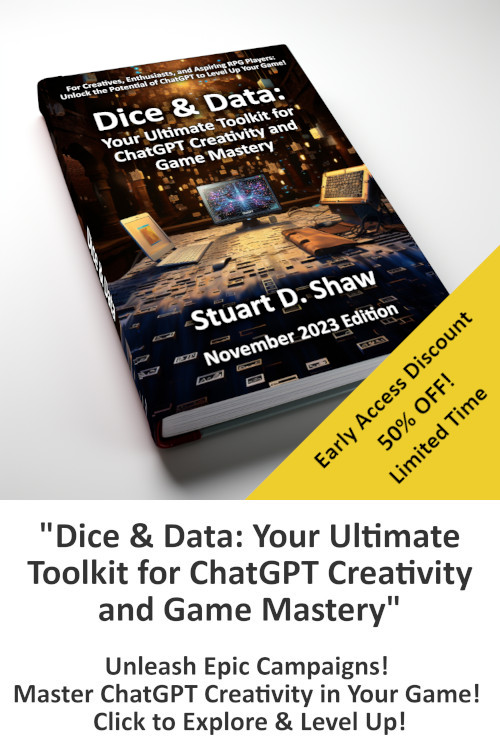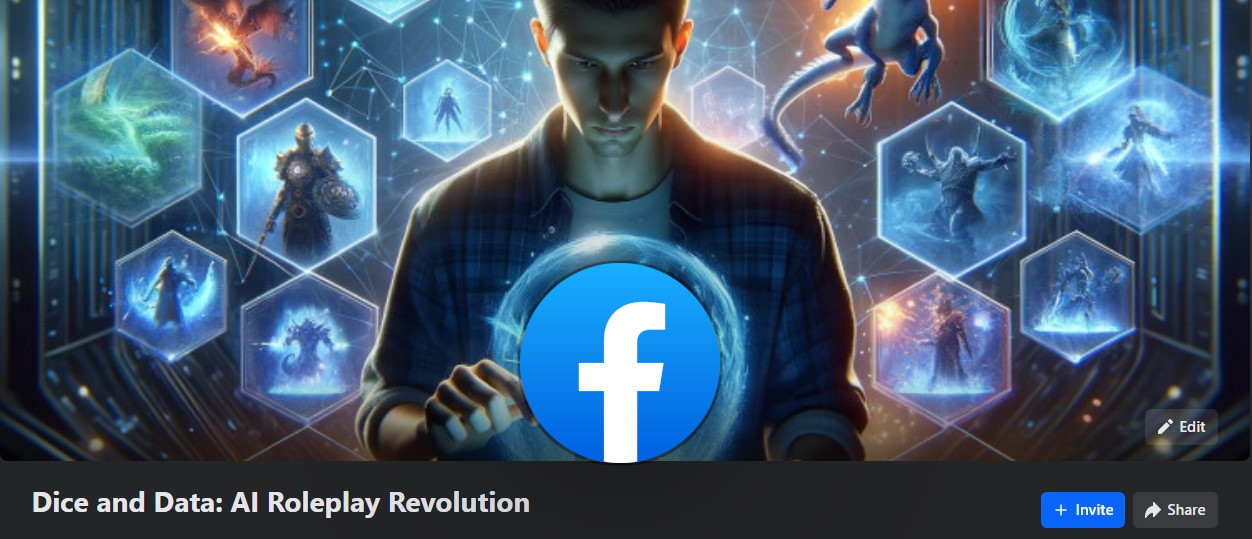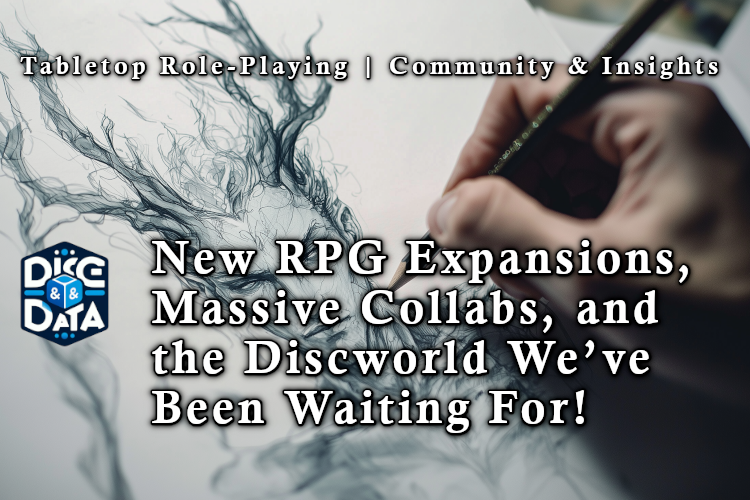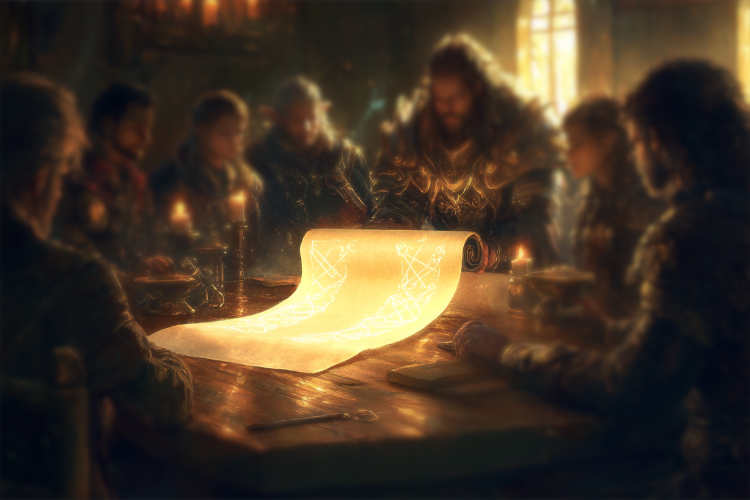
- Home
- RPG AI Blog
- Truth About Storytelling in TTRPGs
Stop Calling It Storytelling! The Real Truth About Collaborative Narrative Crafting in TTRPGs
In the world of tabletop role-playing games (TTRPGs), we often hear GMs (Game Masters) being referred to as “storytellers,” and the game itself as “collaborative storytelling.” It’s a term that’s been thrown around so much that most of us have accepted it without a second thought. After all, it sounds right, doesn’t it? We sit around a table (or more often these days, a virtual one), roll some dice, and tell a story together. But here’s the rub: that term is technically wrong.
Let me explain.
We’re not actually playing stories. Not in the way that the word “story” traditionally means. A story, by its very definition, is something that has already happened. It’s a recounting of events—whether real or fictional—that has a beginning, middle, and end. By the time it becomes a “story,” it’s finished. It’s done. The ink is dry.
But in TTRPGs, when we’re rolling our dice and role-playing our characters, we’re not recounting events that have already happened. We’re not telling something pre-written. No, we’re playing in a world of possibility, where the next action, the next plot twist, the next choice hasn’t been decided yet. In the moment of play, it’s all in flux. It’s unfolding in real-time.
In short, it’s not a story yet. It’s something else. Something that exists in a nebulous, pre-story state. So what are we actually doing?
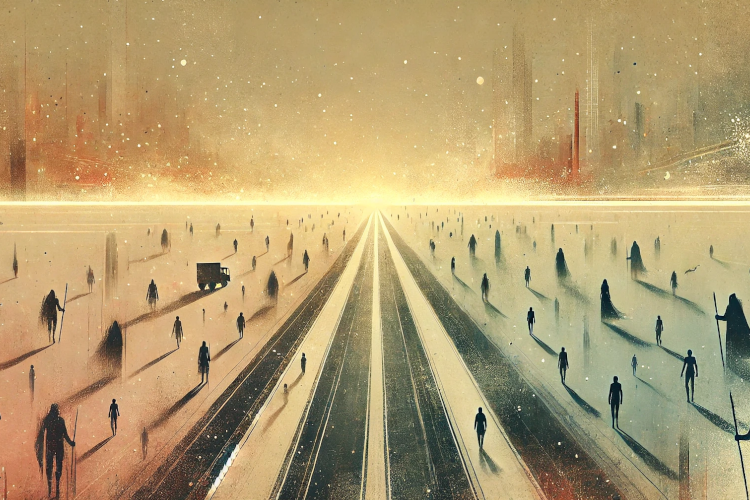
Playing in the Pre-Story
The traditional definition of a “story” comes from the Latin historia, which, unsurprisingly, also gives us the word “history.” Both words have roots in recounting something that has already occurred. A story, therefore, is something historical in nature. Even if it’s a fictitious event or narrative, it’s always presented as something that has happened—whether in a fairy tale long ago or a galaxy far, far away.
In TTRPGs, we’re not in the realm of history. We’re in the realm of possibility. At any given moment, the story could go in any direction. The dragon might decide to burn down the village, or it might be convinced to fly away peacefully because your bard just rolled a natural 20 on their persuasion check. Until the dice land, until the choice is made, there’s no story—just a million possible ones.
That’s the magic of role-playing games. You’re not following a pre-scripted story, and you’re not recounting something that’s already happened. You’re creating it, second by second, decision by decision. In this sense, TTRPGs are less about storytelling and more about story-making. But even “story-making” feels a bit premature because, until the session is over, the “story” hasn’t truly formed.
What we’re really doing, then, is playing in what I like to call the “pre-story” phase. We’re building the raw material that will later become a story. And that distinction matters.
GMs: Not Storytellers, but Something More
Game Masters are often called “storytellers,” but in truth, they’re more like “narrative architects.” They lay the groundwork, sketch out the possibilities, and create the conditions under which a story could emerge, but they don’t tell a story in the traditional sense. The players do that, too, and even they don’t tell the whole thing—they just live out their characters' decisions in real-time, nudging the narrative in unpredictable directions.
Calling a GM a “storyteller” implies they know how things will end, that the “story” exists in their head and they’re merely guiding the players through it. But in a well-run game, that’s rarely the case. A good GM isn’t crafting a linear narrative with a fixed ending—they’re building a framework, leaving plenty of space for the players’ choices to change the direction of events. In fact, a lot of GMs don’t know how the session will end until it does.
So if GMs aren’t storytellers, what are they? Narrative weavers? Event architects? Possibility curators? There’s no perfect term, but what’s clear is that the role is far more about constructing an evolving set of potential outcomes than about recounting a fixed, linear tale.
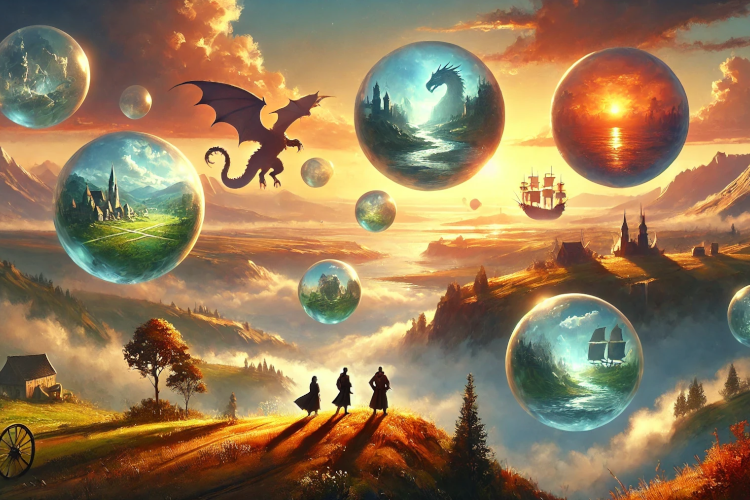
Players: Not Storytellers, but Architects of Chaos
And what about the players? They’re not really “storytellers” either. When they roll that dice to land a critical hit, or when they decide to steal from a shopkeeper (despite the fact the GM definitely did not expect that), they’re not telling a story—they’re creating chaos. They’re making decisions that haven’t been made yet and forging paths that hadn’t been considered five minutes earlier. In essence, they’re architects of chaos, not narrators of history.
The story only forms after the dice stop rolling. After the session is over. When you sit back and recount the crazy series of events that led to that unexpected twist or dramatic confrontation. That’s when it becomes a story. But in the moment? It’s all pre-story, raw, untamed narrative potential waiting to take shape.
Collaborative Narrative Crafting: A More Accurate Term
So, if we’re not “storytellers,” what’s a better term for what we do in TTRPGs?
I’d argue something like “collaborative narrative crafting” fits the bill. It captures the evolving, improvisational nature of TTRPGs without implying that the events are already set in stone. It suggests a process, not a finished product. Or maybe “event weaving” or “moment crafting”, which both emphasize the act of building something in real-time, moment by moment, action by action.
Ultimately, whether you’re a GM or a player, you’re part of an unfolding process of narrative creation, not storytelling in the traditional sense. You’re crafting events, shaping outcomes, and, when the session is finally over, only then do you have a “story” to tell.
And maybe that’s the real magic of TTRPGs. The story isn’t something you come to the table with—it’s something you leave with. When the dice stop rolling, when the final decisions are made, when the players recap their wild exploits—that’s when you get your story. Until then? You’re just swimming in a sea of narrative possibility.
And frankly, that’s much more exciting.

Written by Stuart Shaw, a 40-year veteran of tabletop role-playing games. His journey started with Dungeons & Dragons in 1983, and he is the author of "Dice and Data: Your Ultimate Toolkit for ChatGPT Creativity and Game Mastery". Stuart is eager to share his passion and expertise with the world and enjoys writing about news and innovations in the RPG world. Join him on an exciting adventure into the world of TTRPGs. About me.
